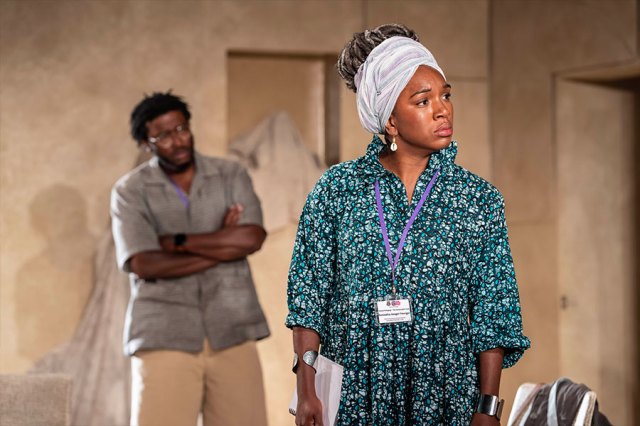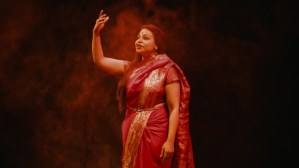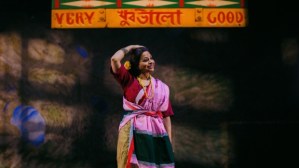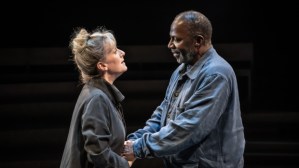Beneatha’s Place at the Young Vic – review
The theatre’s artistic director presents his play in central London

Kwame Kwei-Armah’s play is about history – and the impact of history on the present. At one point it paraphrases George Orwell’s 1984. “Those who own history own the future, those who own the present own the past.”
It is utterly absorbing and timely. Yet perhaps because of the weight of its own history it never absolutely takes flight.
First seen in Baltimore in 2013, and rewritten and restaged for this UK premiere, Beneatha’s Place is a direct response to the theme and structure of two other plays: Lorraine Hansberry’s 1959 A Raisin in the Sun and Bruce Norris’s Clybourne Park, both of which begin with a Black family moving into a white neighbourhood and then unpick the repercussions of that act.
The character of Beneatha and her husband Joseph Asagai are directly lifted from Hansberry’s play; here we meet them as they begin their new life in Nigeria, where he is a rising politician negotiating independence and she is about to be a doctor. We also glimpse her as a radical lecturer fighting for the establishment of a department of African American studies.
Finally, in the second act, we see a widowed Beneatha returning to her first marital home. She’s now a dean of social studies at an American university and she uses the setting, with its own traumatic narrative, to provoke her mainly white colleagues into a debate about the prism through which they should study race.
Throughout Beneatha is played by Cherrelle Skeete, who by changes of costume and slight alterations of intonation and demeanour magnificently conveys the shifts in age and belief that her character undergoes. In the first act, she’s all outrage as the white missionary owners of the house welcome her in by showing how the light switches work and teaching her how to run a bath. Later, with her own position secure, she reveals the watchfulness with which her life has shaped her attitudes. “I’m teaching,” she tells a young colleague. “Teaching the long game.”
It’s a luminously intelligent performance that holds the play. Around her, however, although the cast are excellent, their characters don’t really register. They become mouthpieces for arguments rather than individuals. The first act, essentially, is an examination of the noxious power of colonialism, the way it corrupts even in retreat, the difficulty of true determination. It tells its tale like a melodrama, with a lot of events crammed into a short space.
The second asks even bigger questions about whether – in the words of one of Beneatha’s self-righteous colleagues – “race as we know it is dead”, and “critical white studies” are the only way forward for the future. Is this just another example of colonialism’s long legacy? How does progress actually happen? The mood is that of a lecture, static and argumentative.
As director, Kwei-Armah doesn’t resolve how to keep his own play’s momentum. Debbie Dru’s set is evocative but plain. It’s all quite straightforward and never quite escapes the shadow of the two plays that have inspired it. But those ideas do grip, compelling attention.
















